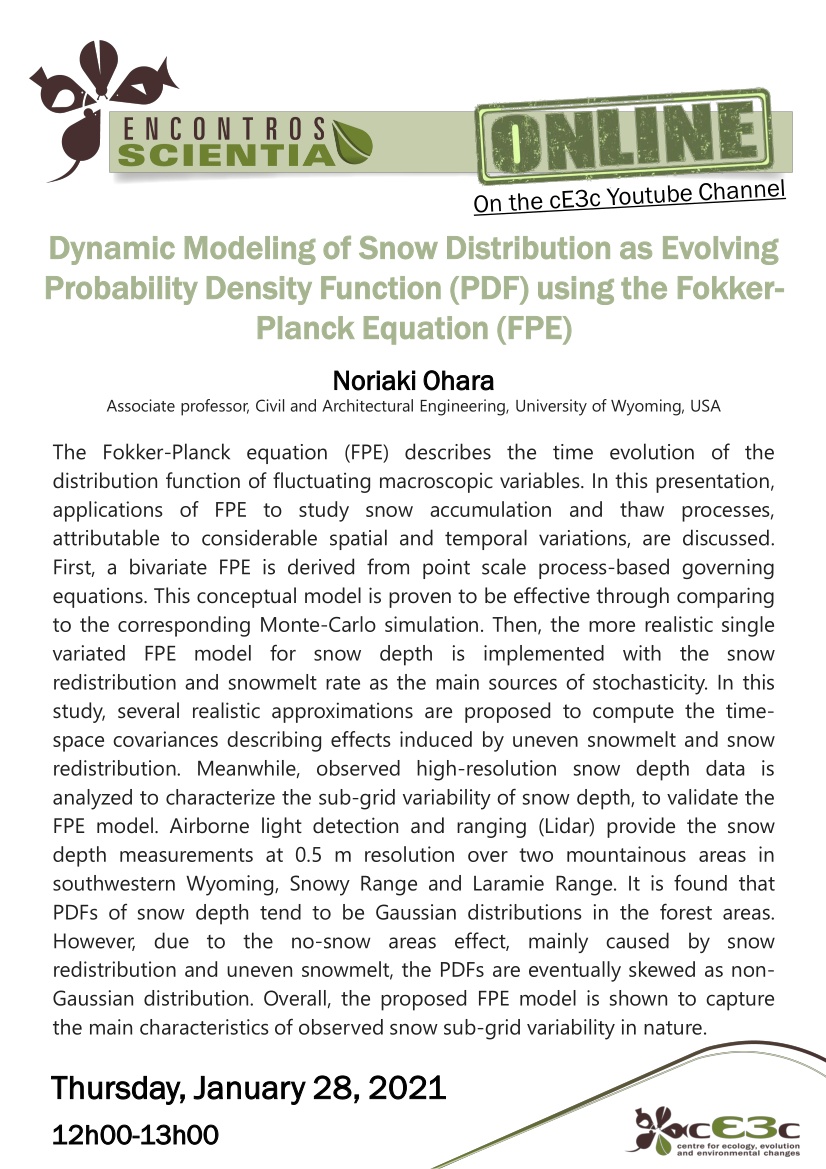The monophyly of Bryophytes is supported by nuclear and plastidial protein phylogenies
Filipe de Sousa (CoBig2 - cE3c)
ONLINE. UPDATE: For technical reasons, exceptionally this Scientia Meeting will take place on Zoom, HERE: https://videoconf-colibri.zoom.us/j/81517180400
Determining the phylogenetic relationships among the first land plant lineages is essential for an understanding of the evolution of terrestrial ecosystems. The predominant point of view has been that bryophytes were the first to colonise land and that tracheophytes descend from an ancestral bryophyte. This hypothesis is supported by molecular evidence, including organellar and nuclear protein-coding genes. However, analyses of the amino acid translation of these same data show an alternative pattern whereby mosses and liverworts form a group that often includes hornworts. We show that the signal supporting the hypothesis of a bryophyte ancestor of land plants is mostly driven by substitutional saturation at synonymous sites in nucleotide data, and that non-synonymous sites and amino acid nuclear data converge on the same supported result, namely, that bryophytes form a monophyletic group. These results indicate that conventional stationary substitution models are inadequate for analyses of molecular data that is highly saturated and affected by composition bias. Analyses of codon-degenerate and amino acid-translated nuclear and chloroplast data, under composition tree-heterogeneous models, strongly support the monophyly of bryophytes, and imply that an ancestral land plant lineage diverged rapidly into bryophytes and tracheophytes. This relationship suggests that the bryophyte life-cycle, characterised by a dominant gametophyte that nurtures an unbranched sporophyte, is not ancestral to all land plants, and that stomata are a symplesiomorphy among all land plants.
Thursday, February 4, 2020, at 12h00-13h00 (Lisbon, Portugal time)
ONLINE. UPDATE: For technical reasons, exceptionally this Scientia Meeting will take place on Zoom, HERE: https://videoconf-colibri.zoom.us/j/81517180400

